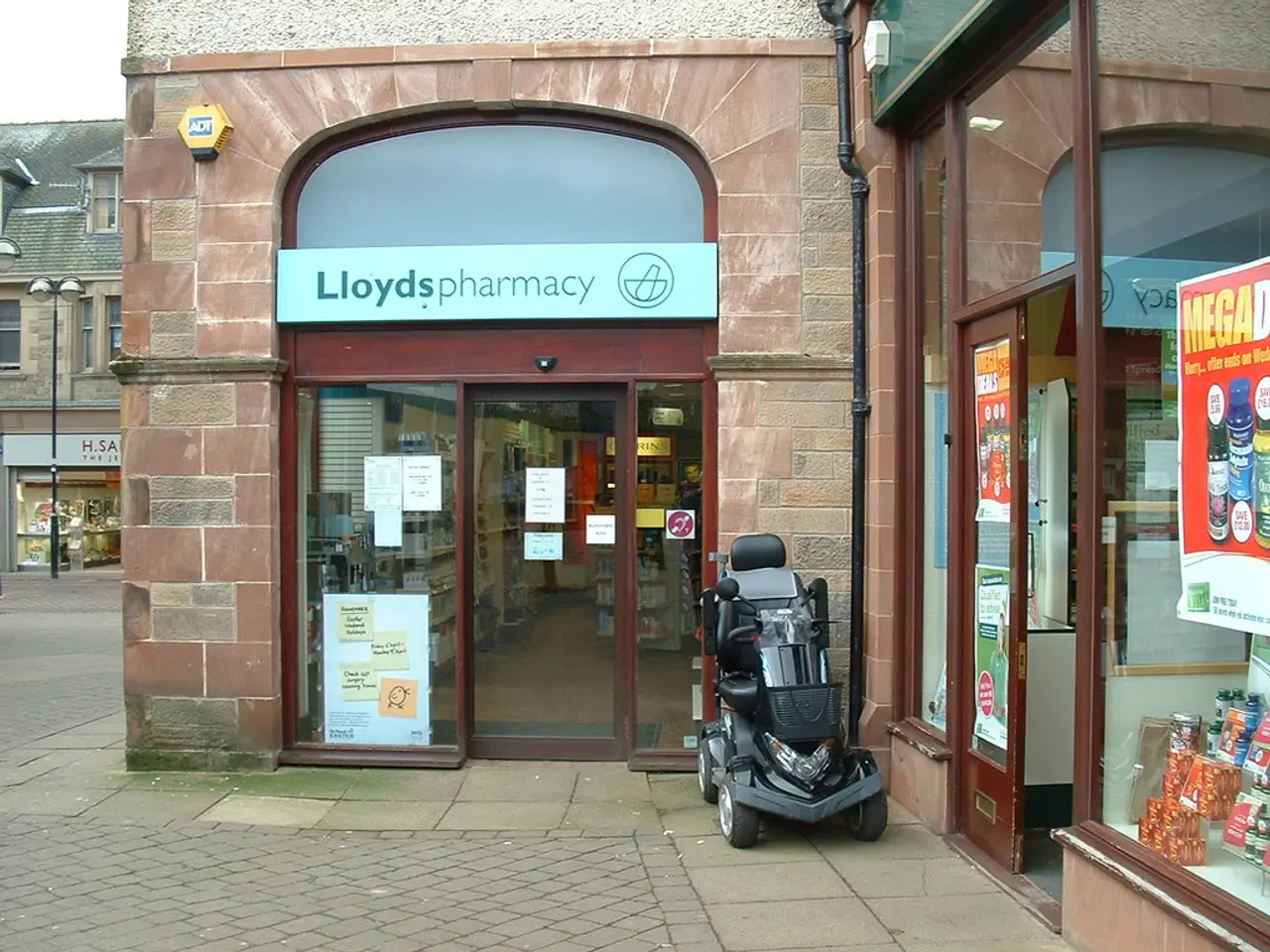Skyrocketing prescription costs burden an increasing number of American citizens
In the face of escalating prescription drug costs, a growing number of Americans are making sacrifices to maintain their healthcare. According to the latest GoodRx Research survey, 67% of Americans who filled a prescription described the cost of their medication as a burden, with 42% reporting taking some kind of financial action due to healthcare costs in 2025.
High prescription costs remain a significant burden, despite efforts like the May 2025 executive order aimed at cutting drug prices. Historically, drug prices in the U.S. have been two to three times higher than in other developed countries[1][3]. The cost of healthcare, including prescription drugs, continues to outpace inflation, straining consumer finances[1][4].
These financial pressures have led to rising concerns. In 2025, 38% of Americans worried about affording their medications, up from 27% in 2024, reflecting growing financial pressures[2].
Faced with these challenges, Americans are employing various strategies to manage their prescription costs. Discount programs, such as GoodRx, have become increasingly popular, with 43% of respondents taking advantage of these tools[2]. About 40% receive free samples from their healthcare providers to reduce costs[2], and many shop at different pharmacies to find better prices[2].
Some turn to over-the-counter medications or supplements, though this can be risky[2]. Copay cards, manufacturer subsidies, and low-inccome subsidy programs are also used to lower out-of-pocket costs[2]. A smaller percentage purchase medications from other countries, a practice that can be risky due to potential quality and safety issues[2].
The survey also revealed that 1 in 5 people reported rationing their medications due to cost[2], and 13% stopped taking a medication entirely in 2025[3]. Delaying prescription refills has become common, with 16% doing so in 2025[3].
The desperation and resourcefulness of individuals seeking affordable healthcare solutions are evident. More than half (57%) worried about affording at least one healthcare or essential cost in the past year[2]. Some people took riskier measures such as replacing prescriptions with over-the-counter medications or supplements, using medications prescribed to someone else, or purchasing medications from another country.
The survey also found that 25% took on credit card debt to cover healthcare expenses, up from 22% in 2024[3]. A concerning 6% took out a loan to cover healthcare expenses, up from 4% in 2024[3].
These findings underscore the urgent need for more affordable prescription drugs and comprehensive healthcare reform. The struggle to afford prescription medications is a reality for many Americans, and it's a situation that requires immediate attention and action.
[1] Peterson, K. (2023). International Comparison of Prescription Drug Prices. Commonwealth Fund. [2] GoodRx Research (2025). Prescription Drug Affordability Survey. [3] Kaiser Family Foundation (2025). Prescription Drug Prices and Out-of-Pocket Costs: An Overview.
- In the scope of surging prescription drug costs, a substantial number of Americans are making concessions to preserve their healthcare.
- The cost of medication, a significant aspect of healthcare, continues to surpass inflation, creating a financial strain on consumers.
- The escalating financial burdens on healthcare have sparked growing anxieties, with 38% of Americans worrying about affording their medications in 2025.
- To manage escalating prescription costs, Americans are utilizing diverse strategies, including discount programs, shopping at different pharmacies, and using over-the-counter medications or supplements.
- Despite these strategies, many Americans remain burdened, with 1 in 5 people rationing their medications due to cost and 13% stopping a medication entirely in 2025.
- In an attempt to alleviate these costs, some people have resorted to more risky measures like replacing prescriptions with over-the-counter medications or supplements, using medications prescribed to someone else, or purchasing medications from another country.
- Financial pressures related to healthcare expenses have resulted in 25% of people taking on credit card debt and a concerning 6% taking out loans in 2025.
- The urgent need for more affordable prescription drugs and comprehensive healthcare reform is highlighted by the survey findings, which demonstrate the struggles faced by many Americans in affording necessary medications.




